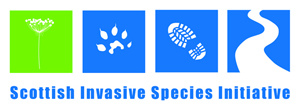Welcome
Welcome to the Scottish Invasive Species Initiative - and thank you for giving your time to support our project. Invasive non-native species are one of the greatest threats to biodiversity worldwide, so your contribution is supporting essential environmental management. We hope you enjoy spending time volunteering with us, that you have worthwhile and rewarding experiences and make some great memories along the way.
Our project could not happen without the support of volunteers, so we hope you understand the value you are bringing – we certainly do. We hope that we will be able to support you with training and inspire you to keep on managing invasive species, long after our project finishes. Please click here for a pdf version of this handbook.
Introduction
About us
The Scottish Invasive Species Initiative is a partnership project working with communities and volunteers to control invasive non-native species to benefit our native wildlife and freshwater environments.
The Initiative is funded by the Scottish Government’s Nature Restoration Fund. Partners are NatureScot, the University of Aberdeen and 10 individual fishery trusts/boards. The fishery trusts/boards are our delivery partners on the ground and are hosts to, and responsible for, our volunteering activities.
The volunteer relationship
We recognise that as a volunteer you have offered your time freely. There is, however, an element of responsibility on both sides to make our relationship with you work effectively.
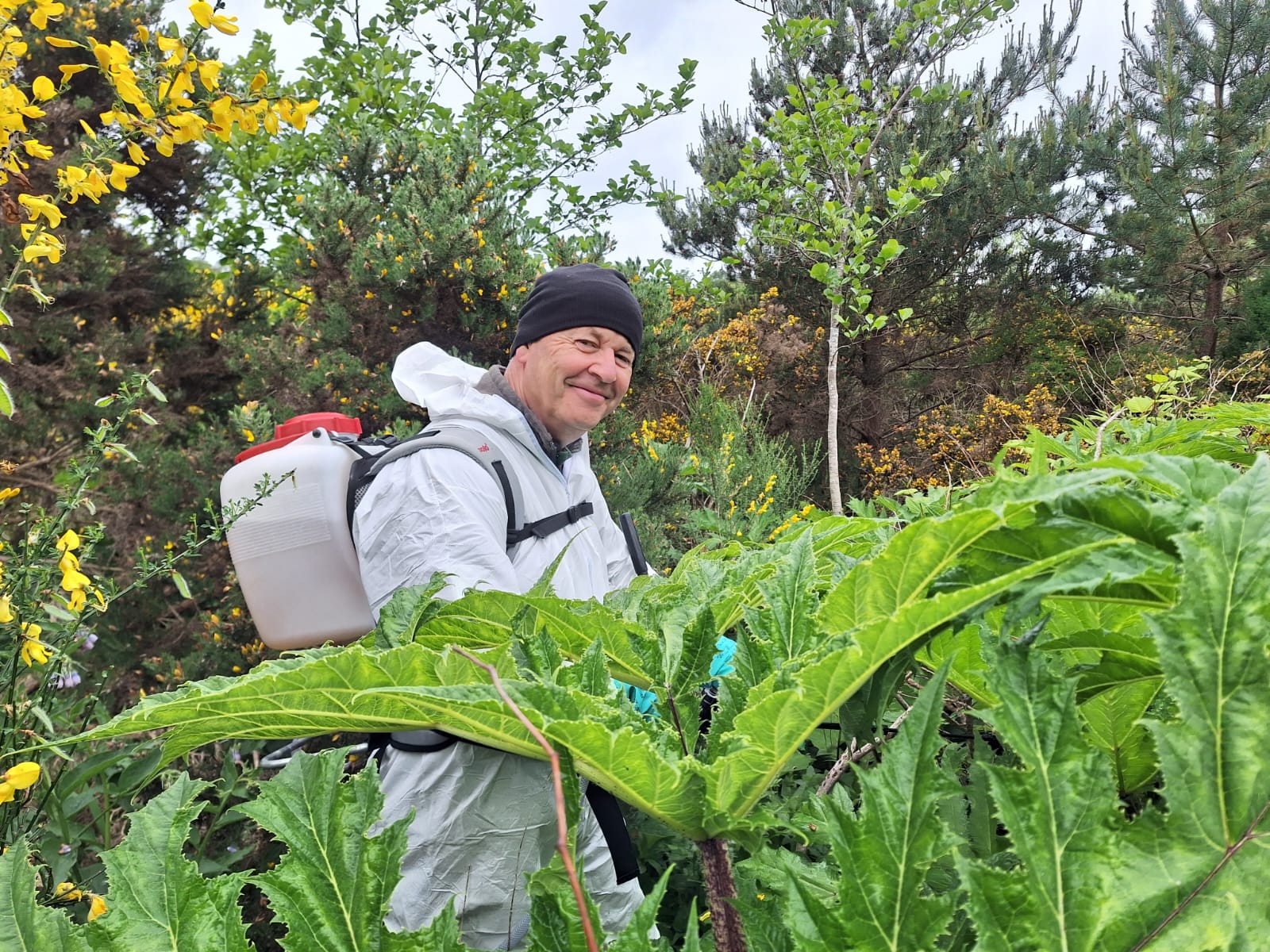
Responsibility of volunteers
We ask that, as a volunteer, you:
- Maintain good relations with other volunteers, project officers and fishery trust staff
- Be reliable and responsible
- Give commitment and undertake work to the best of your ability
- Carry out your role safely, for your own sake and others
- Respect confidentiality, equal opportunities and health & safety policies
- Respect and protect our natural landscape
- Enjoy yourself!
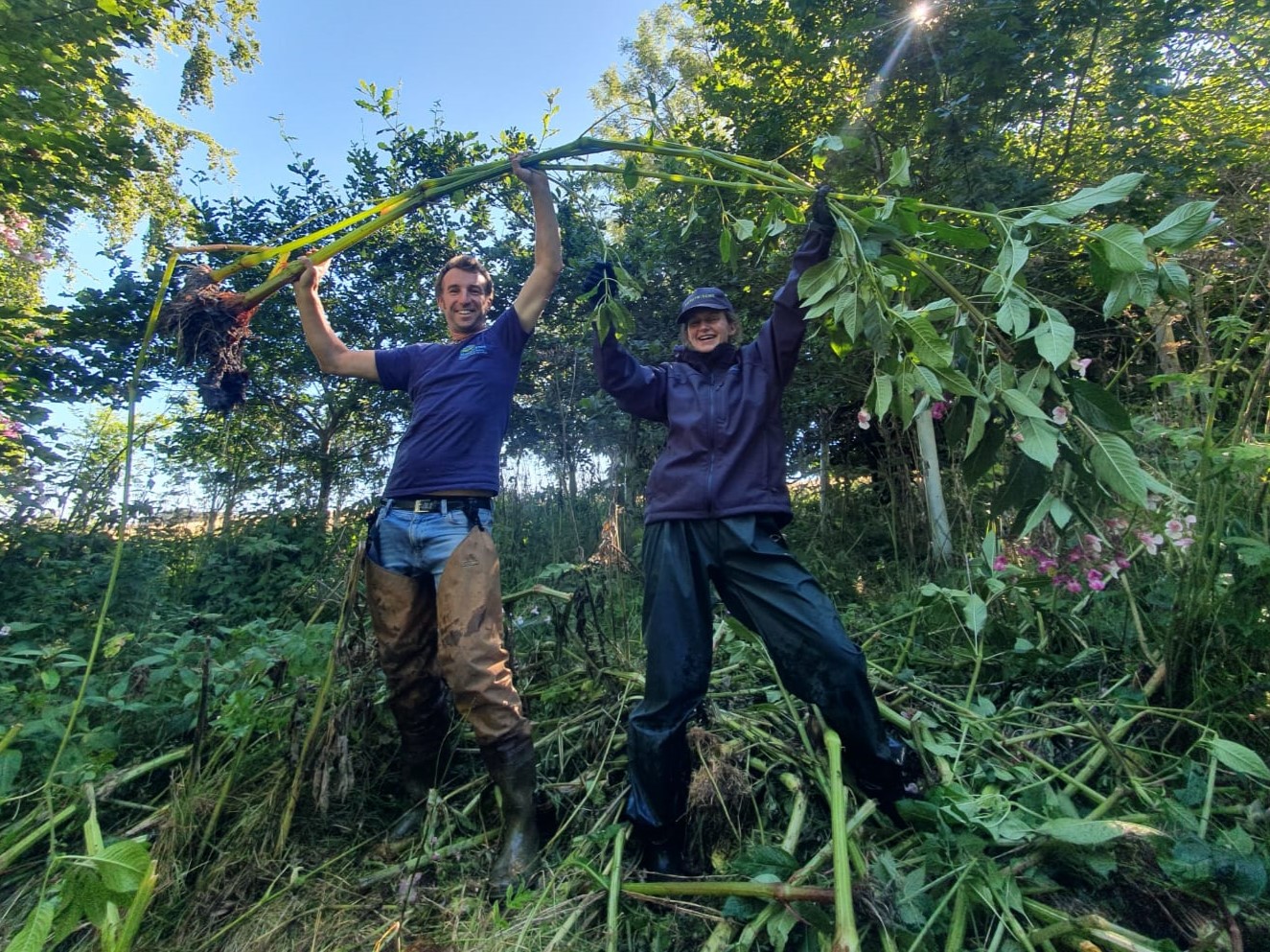
Our responsibilities to you
As a volunteer you can expect:
- A clear explanation of what you will be doing and why
- Appropriate training, supervision, support and tools & equipment for your role
- Safe working conditions
- Induction training and the opportunity to attend further training
- To feel your contribution is valued
- To see and know how your contribution fits into the wider context of the Initiative
The Essentials
Who can become a volunteer
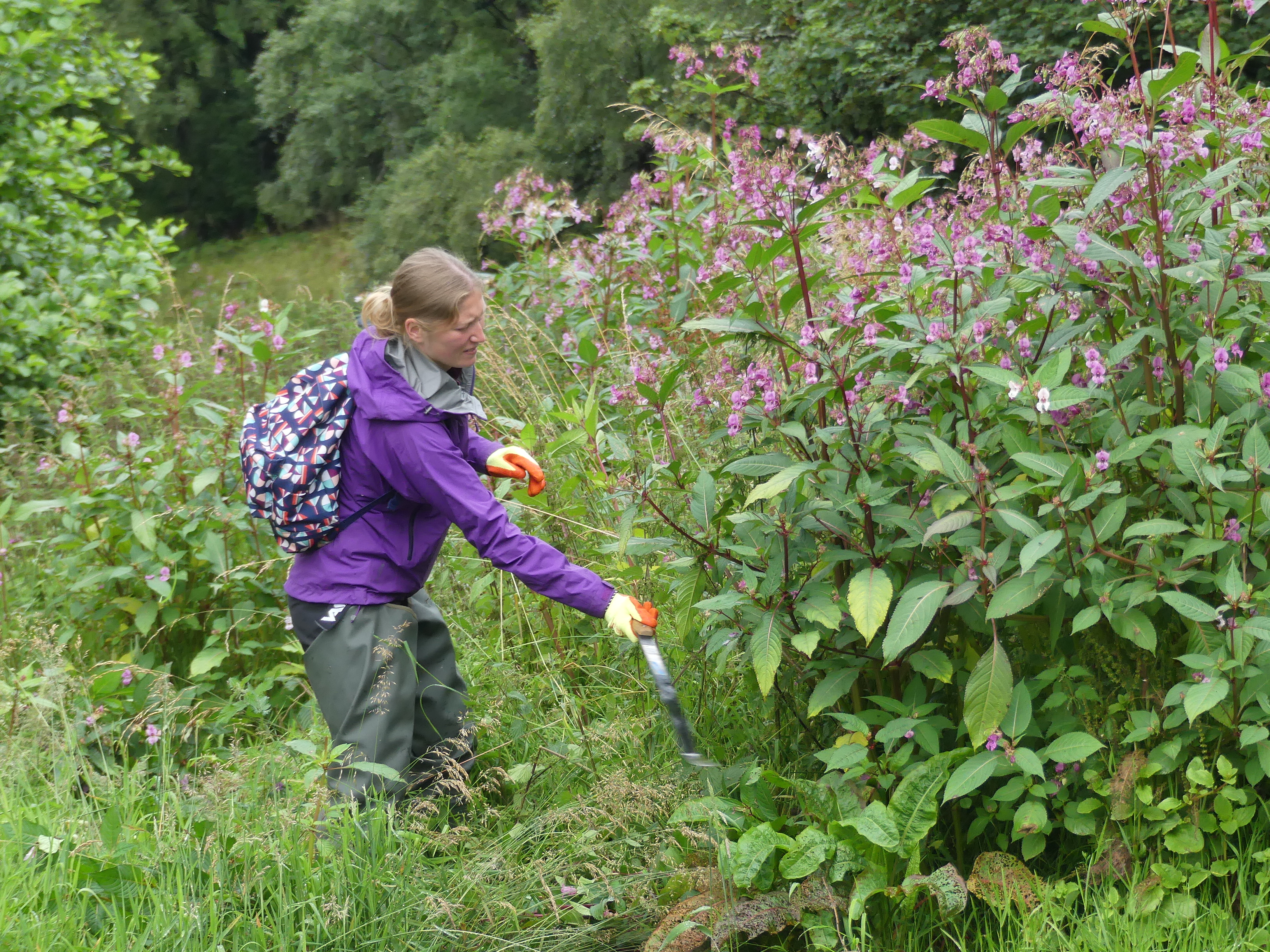
We believe that volunteering should be open to all and we welcome anyone who wishes to join in and contribute, based on the suitability of each volunteer to carry out any particular role and in the context of the location and nature of the task.
A passion for working in and conserving Scotland’s countryside and an enthusiasm to get involved is all you need. You do not need to have any previous experience to volunteer with us - you will receive support, encouragement and training and work alongside project and/or fishery trust staff to help you.
We welcome people of all abilities and all ages - our normal minimum volunteering age is 18 years old. However, we are happy to talk to anyone under 18 years about how we can work with you.
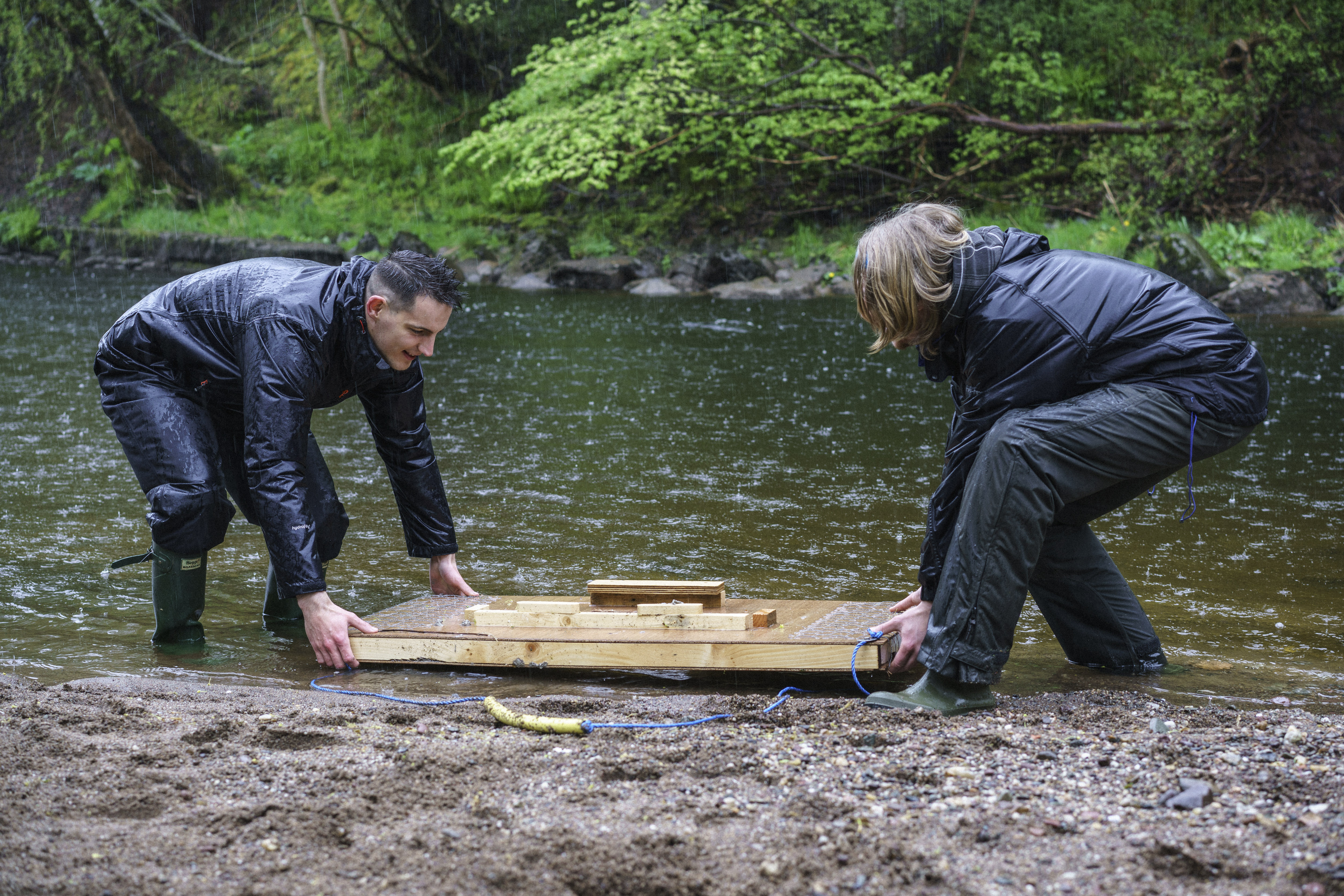
Support and supervision
All volunteers will have a designated staff member to use as a point of contact for queries, training requests or problem resolution. This is the person you have arranged volunteering with and who is identified in your welcome letter.
Your contact will also undertake any induction to your volunteering role - in addition, this handbook includes further information that you may find useful. If you have any questions not covered here, please do not hesitate to ask your local contact.
The Initiative also employs a Project Manager and a Volunteer & Communications Officer. You may receive communications directly from either of these people and similarly you are welcome to contact them directly about your volunteering role if you wish or if you have an issue that has not been resolved locally. Their contact details are provided at the end of this handbook.
How we communicate with you
Most of the contact you will have with the project will be directly through your local contact (either a project officer or fishery trust staff member). This is also the first person to talk to about any aspect of your volunteering with us.
You will also receive our newsletter by email (only if you opted in for this). The newsletter will keep you up to date with wider project activities, celebrate volunteer achievements and look ahead to future opportunities - so please ensure you sign up for it. You can do this on the project website at the bottom of any page. All previous issues are available here.
We would also encourage you to follow our social media accounts to keep up to date with goings on and engage directly with us. We are on Twitter, Facebook and Instagram.
Please remember - effective communication is a two-way process so do keep in touch with your local contact. We are always looking for positive stories from volunteers to help paint a complete picture of volunteering with us for our e-newsletters, our website and press releases.
Training
We want to provide volunteers with the skills and knowledge that they need to have to undertake practical invasive species management. This will provide a sustainable future for invasive species control, a meaningful legacy to the project and enable you to grow and develop as a volunteer. We can cover the costs of most training to remove barriers to anyone who is interested in gaining qualifications.
Formal training and qualifications will usually take the form of pesticide application (PA1/PA6/W) and outdoor first aid qualifications. External providers deliver these training courses in locations to meet local volunteer demand.
Our project and fishery trust staff also provide informal training and support. This will primarily take place in the field during task days or, sometimes, in specific organised days. This could include skills such as species identification and field survey techniques.
We can support volunteers who wish to undertake the John Muir Award with us or as part of another group’s programme. For example, we can help with your planning and proposal forms and confirm completion of relevant tasks and activities.
If you would like to put your name forward for training, please notify your local contact. External training is expensive to provide and so we offer these opportunities to those who we judge to have made or will make practical contributions to control work.
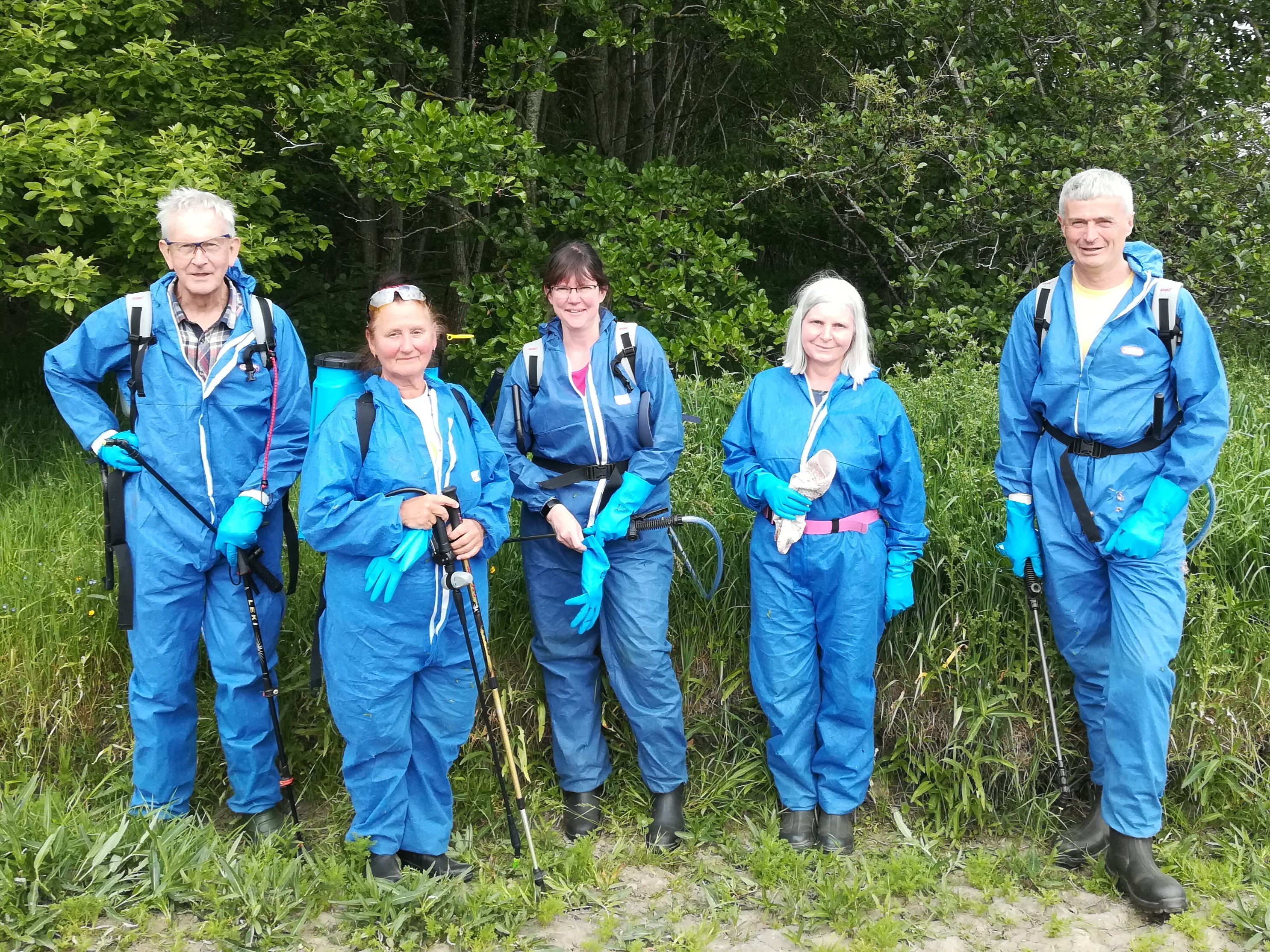
Representing the project
Please remember that as a volunteer you are informally representing the project to the public. Please answer any queries to the best of your ability but don’t be afraid to say you don’t know! If asked about a sensitive issue or feel uncomfortable answering anything, always refer these queries to a member of staff.
Please refer any enquiries from members of the press to the Volunteer & Communications Officer who deals with this for the whole project.
We welcome promotion of the project on social media, however we expect you to remain respectful of the Initiative in your comments and posts. Please tag us into posts on Facebook, Twitter and Instagram.
As a volunteer you may become party to information of a confidential nature and your discretion is essential to ensure it remains that way.
Recognition & reward
As well as providing access to training and qualifications, we want you to have fun and know that your contribution to the project is valued.
We will acknowledge the hard work of our volunteers, say thank you and show our appreciation for a job well done. To do this we may hold social events or site visits to celebrate our joint achievements - you will get the opportunity to attend and meet other volunteers and supporters of our work.
We will use our newsletter, website, social media and press to acknowledge and highlight the work of our volunteers. You can help feed into this by writing a short article or giving a quote on how you have found your volunteering experience or enjoyed a specific activity.
Volunteering can enhance your CV and employability. If you would like a summary of your volunteering, we would be happy to provide this. Based on your voluntary work, you may also request a reference, which should be done through your local contact.
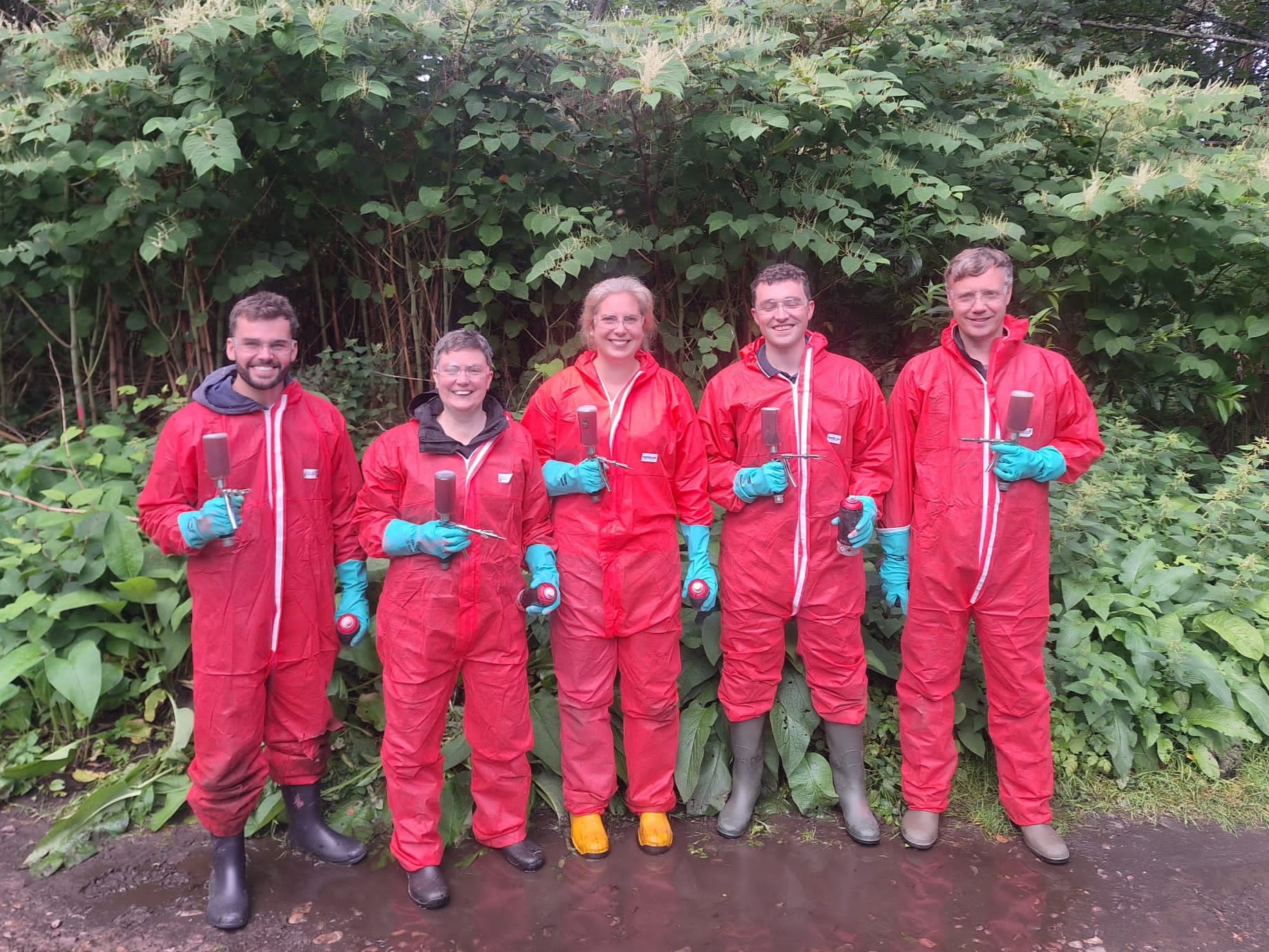
Feedback
We welcome feedback from you about your experiences volunteering with us - we will use this constructively to improve and enhance the volunteering experience we provide for you and others.
Throughout the project, we collect feedback from across the volunteer network e.g. by sending out surveys or conducting interviews, and we would encourage you to participate in these.
We are also happy to hear feedback from our volunteers at any time. You can email any comments or observations to your local contact or to our Volunteer & Communications Officer. We are always willing to listen!
Expenses
We would hope you are able to get to your place of volunteering at your own expense, as we do not have the resources to reimburse all volunteers for their travel expenses.
However, some specific projects have small budgets for expenses and we may be able to support volunteering expenses in certain cases. For example, for individuals where costs are a genuine barrier to involvement or groups who can demonstrate a real need for additional support.
Legal Details
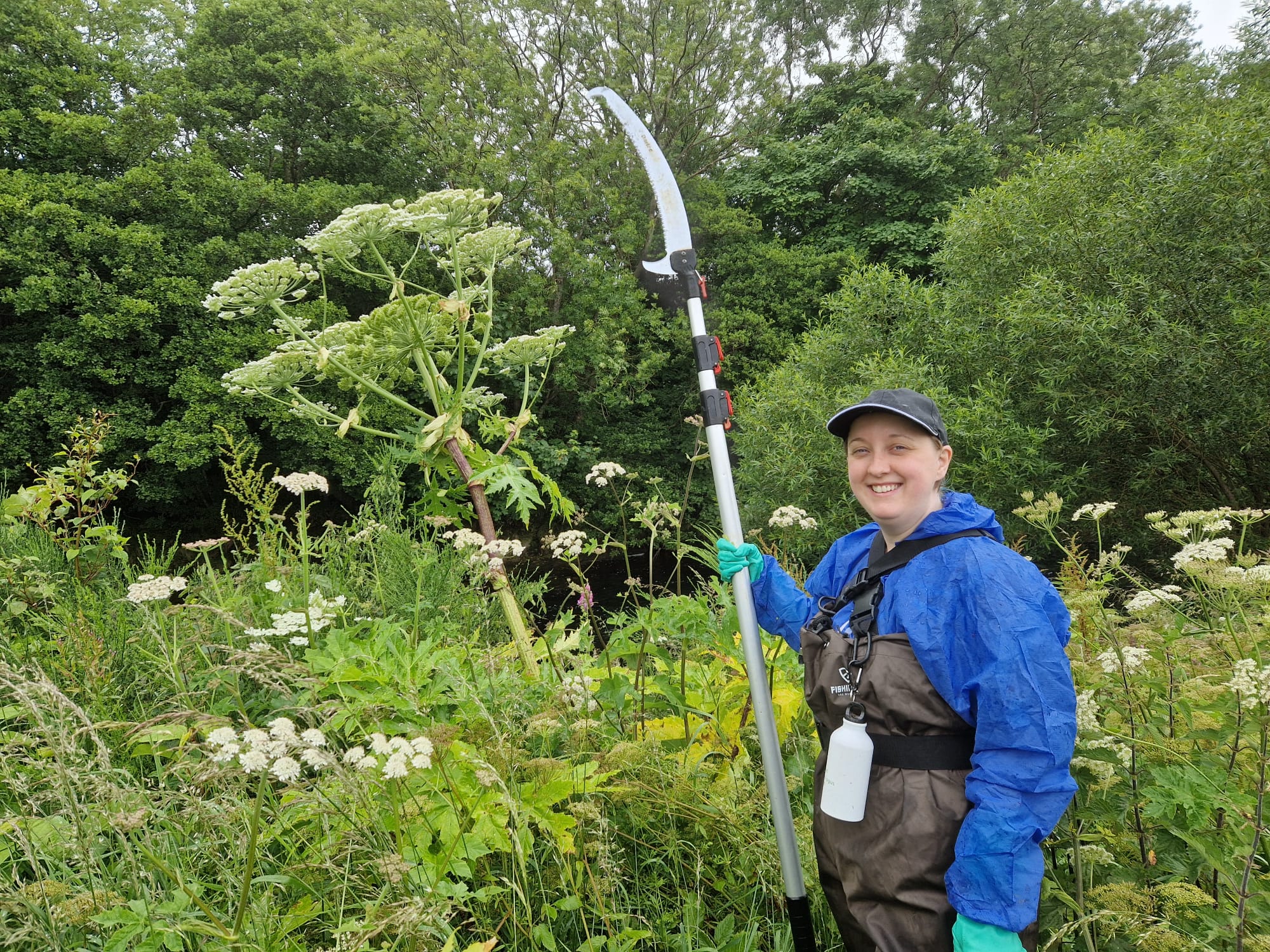
Your safety
We take our responsibility for your health, safety and wellbeing seriously. By law, everyone is responsible for looking after their own safety and that of their colleagues (including volunteers), at all times. You must follow health and safety guidance given by activity leaders and must ask for clarification of anything that you are unsure about.
We will provide clear instruction and information on how to perform each task safely at each site. If, at any time, you are uncertain of the task or how it should be undertaken, please ask for clarification – it is our job to help you help us. All our staff are first aid trained and will have a first aid kit on site.
If you have any safety concerns, please report these immediately to the on-site staff. If you are uncomfortable doing so, then please let our Volunteer & Communications Officer or Project Manager know. We will investigate promptly, treat all reports seriously, and let you know what we have found and done in response to your concerns.
Risk assessments
All activities and sites are risk assessed before the activity. This careful planning provides a safe environment for you to volunteer in.
The contents of this will be communicated to you via a Health & Safety briefing and/or tools talk before the activity commences.
Personal Protective Equipment
It is our responsibility to provide you with essential Personal Protective Equipment (PPE) needed for a specific task. PPE may be issued for the day or for the duration of your volunteering. We will provide instruction on correct use of PPE - it is your responsibility to use equipment as instructed.
We may ask anyone who does not use or misuses required PPE to leave a work area or even terminate their volunteering with us.
Incident reporting
If you experience an accident, incident or “near miss” while volunteering (no matter how minor), you must report it at the time. Please report all incidents to your local contact, who will record it in line with the project and fishery trust procedures.
Depending on the incident, we may need to follow up with, for example, an accident investigation or a report to the Health & Safety Executive.
Your health
It is up to you to inform us of any relevant medical conditions and provide emergency contact details as requested on the volunteer registration form. You should let us know if these details change.
We recommend that all volunteers working outdoors ensure that they have an up to date tetanus vaccination. You should also bring any medication you may need to your volunteering activity.
Your responsibilities:
- By law, everyone is responsible for looking after their own safety and that of their colleagues
- If you see any unsafe working practices, please report them to help us ensure they do not continue
- Listen to the Health & Safety briefing and tools talk at the beginning of any activity – these are important parts of the day. Ask for clarification of any points which you do not understand before the activity starts
- Ensure you have completed a Volunteer Registration form, identified an emergency contact person and informed us of relevant medical conditions
- Inform the activity leader of any accidents, incidents or near-misses
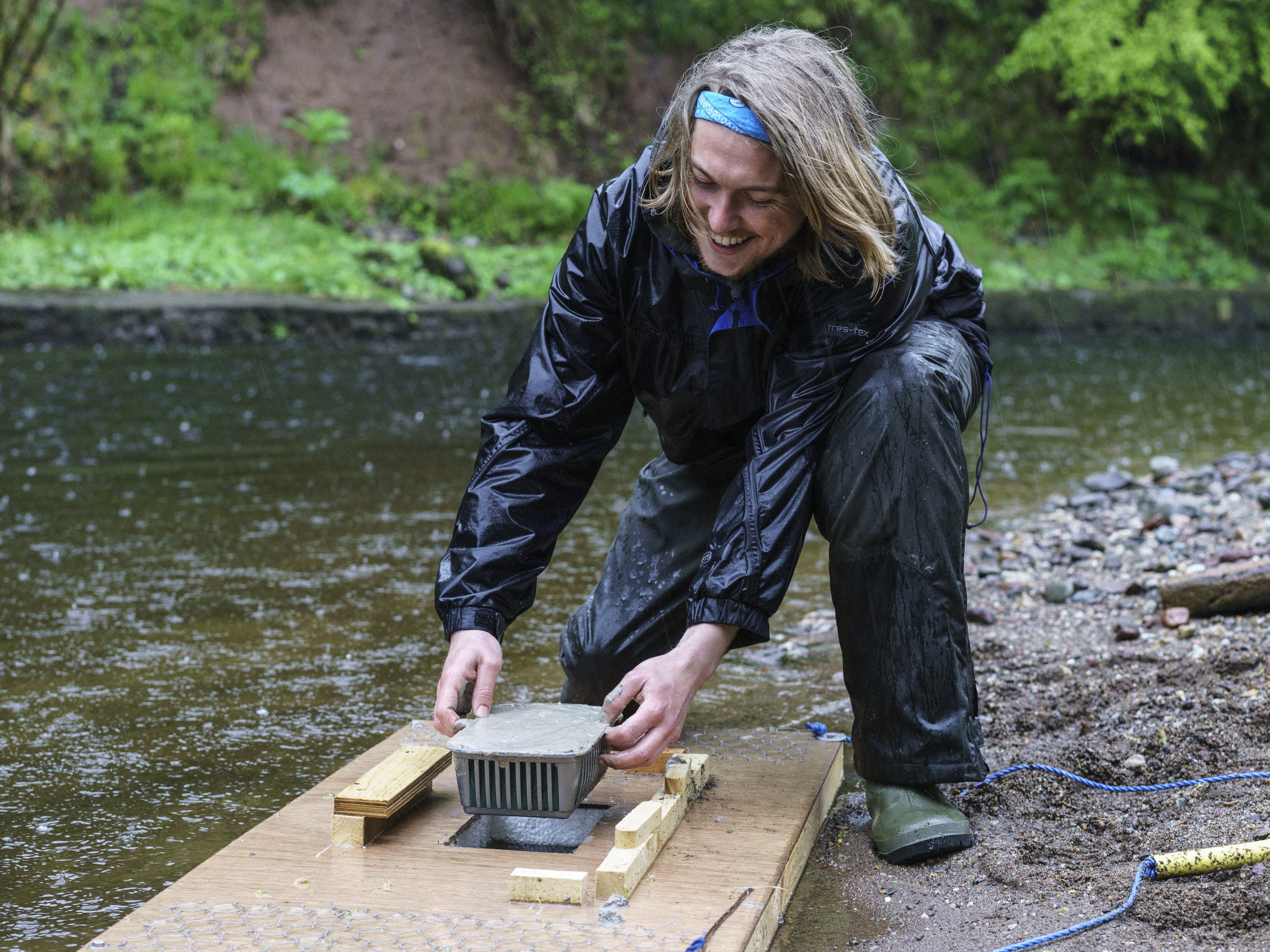
Insurance
All registered volunteers (having completed and returned a volunteer registration form) are insured by the relevant host fishery trust / board while volunteering under the supervision of a project officer and/or fishery trust staff - as long as you are undertaking activities as agreed and have followed policies and procedures and any instructions or guidance given.
Important points to note:
Your personal equipment and belongings are not insured.
If you are using your own vehicle for volunteering activities, it is your responsibility to decide if you need to inform your insurance company of this and, if necessary, arrange for ‘business use’ or any required additional cover to be added to your policy.
If you are undertaking a volunteering activity that is not supervised by a project or partner staff member, particularly monitoring a mink raft or trap, these are undertaken at your own risk and not covered by the organisation’s insurance.
Confidentiality and data protection
The project and the relevant partner hold volunteer details and volunteering records in order to document the contribution made by volunteers and for insurance, health & safety and project reporting purposes. You can read more about why and how we hold your data in our Privacy Notice.
If your personal or contact details change, it is important that you inform your local contact of these changes.
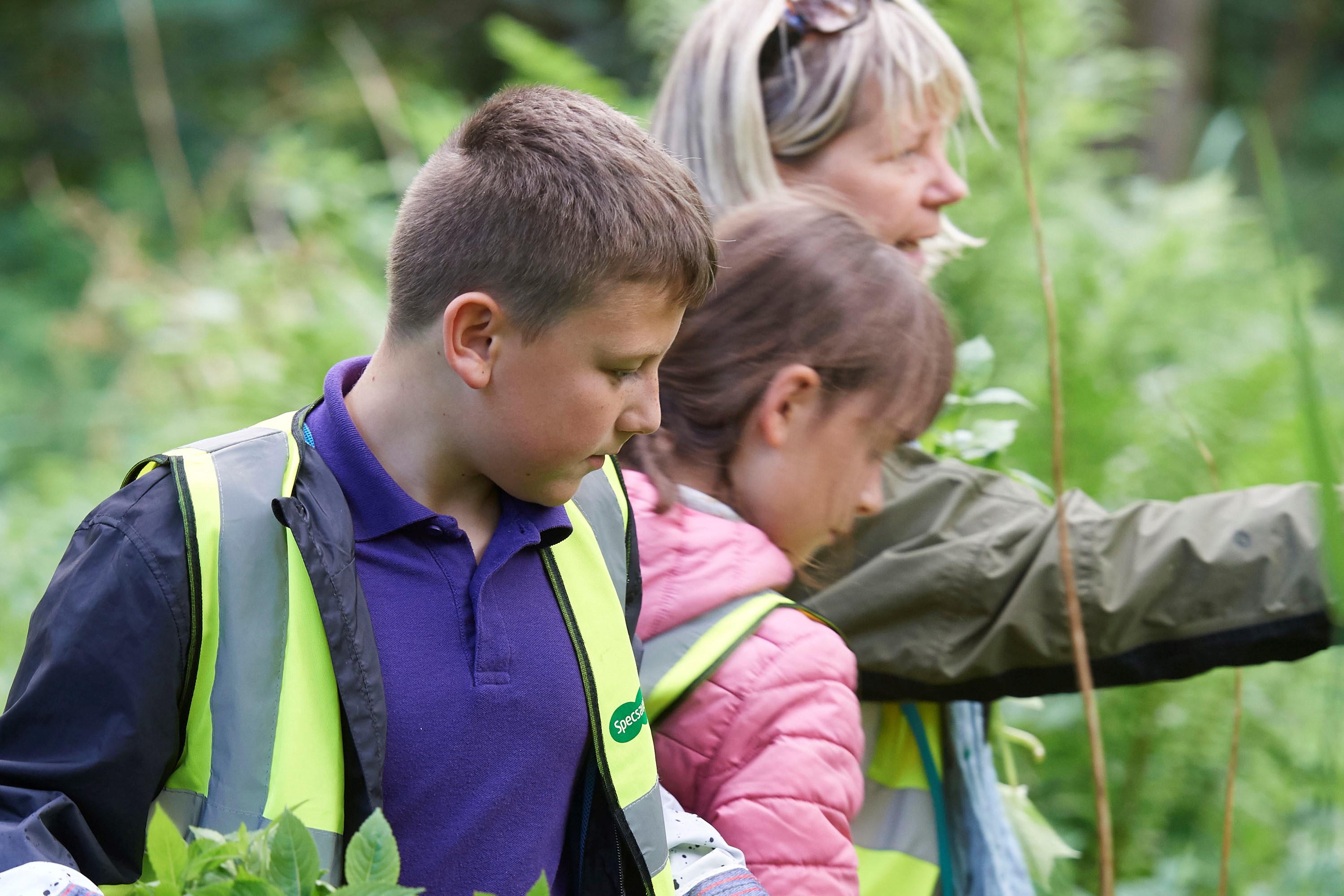
Working with children, young people & vulnerable adults
Anyone working with children, young people (under the age of 18) or with vulnerable adults must complete an ‘enhanced disclosure check’ through the Scottish Disclosure Protecting Vulnerable Groups (PVG) scheme.
Volunteers will not have this responsibility or left unsupervised while working with young or vulnerable people.
Children, young people and vulnerable adults will always be accompanied and supervised by a parent, guardian or staff member from their own organisation or group.
Equal opportunities
The Scottish Invasive Species Initiative is committed to the principle of equal opportunities for all, in respect of both staff and volunteers. We will treat volunteers fairly with respect to opportunities to volunteer, attend training, or the type of work allocated or offered to them.
We aim to integrate diversity and equal opportunity into all of our activities. We do not tolerate discrimination on the grounds of gender, race, disability, age, religion and belief, sexual orientation or any other condition unrelated to employment criteria.
All staff and volunteers must understand and support the equal opportunities position of the project.
What you can do:
- Focus on what others can do, rather than what they cannot
- Ensure that no volunteer or member of staff is being excluded or isolated from the task
- Do not stereotype or generalise about groups of people
- Listen to and respect everyone’s views - regardless of their background or experience
- Be kind to each other
If there is a problem
Don’t panic – we are here to help!
If you have concerns about your own safety, wellbeing or that of any child or at-risk adult, please talk to any member of staff immediately. This can be your local contact, the Volunteer & Communications Officer or the Project Manager. Contact details are on the staff page.
Resolving conflict
We appreciate that disagreements and difficult situations sometimes can and do happen, and we would encourage you to raise these at the earliest opportunity - rather than allowing them to develop into something potentially more serious.
If you have a problem concerning any part of your voluntary work, we ask that you first take this up directly with your local contact. We will always hear and listen to your concerns. If this does not result in a mutually acceptable resolution, further advice should be sought from the Volunteer & Communications Officer and/or the Project Manager.
Complaints
We will try to deal quickly, objectively, sensitively and confidentially with any complaints that arise from, or about, our volunteers or project activities.
In all cases, we will make and confidentially retain a written record of complaints, discussions and outcomes along with copies of any relevant proceedings, statements and other records. We will retain all material for the duration of the project.
If you have a complaint:
- Step 1 - Local Discussion. Speak to your local contact to try and resolve the matter with and through them. If the complaint is about this person, contact the Volunteer & Communications Officer.
If you are unable to resolve the matter or remain unsatisfied with the resolution proposed, you can make a formal complaint to us in writing.
- Step 2 - Written Complaint. Write to the Volunteer & Communications Officer and/or the Project Manager (ideally by email) within two weeks of the local discussion or original incident having taken place.
They will investigate the matter and seek to bring the matter to an agreeable resolution. They will contact you to advise you of the findings of their investigations and of any action or decision taken.
- Step 3 - Opportunity to appeal. You have the right to appeal against the outcome of the written complaint investigation. If you wish to appeal, notify the Project Manager of this. They will provide contact details for a senior NatureScot Manager who, as lead partner, will consider your case. You should notify the Project Manager of this intention within two weeks of receiving the findings of your written complaint. The NatureScot Manager decision will be final.
If a complaint is made against you, as a volunteer:
- Minor indiscretions: local meeting.
- If a minor complaint is made against you this will be raised and discussed directly with you by your local contact
- This is an opportunity to hear about the complaint and air your side of the story
- The discussion will aim to identify an appropriate solution to the matter raised and put in place any required and appropriate actions
- If necessary, the discussion may also involve the Volunteer & Communications Officer. Similarly you would be given the opportunity to be accompanied to a meeting by a person of your choice.
If the issue is not resolved in the local meeting, you may be issued with a written warning in respect of your conduct, and/or the matter will be escalated to the Volunteer & Communications Officer and/or the Project Manager to investigate further.
- Repeated, unresolved or more serious matters: formal investigation.
- The Volunteer & Communications Officer and/or the Project Manager will be responsible for carrying out further investigations
- This may involve interviewing all parties concerned with the incident
- You will be invited to meet with them to discuss the issue - a person of your choice may accompany you to this meeting
- Having considered the views presented, they will inform you of the outcome of the investigation in writing.
Depending on the nature of the complaint, your volunteering with the project may be continued with boundaries set or support or help offered, or, if the matter cannot be resolved, you may be asked to cease volunteering with the project.
- Right to appeal.
- You have the right to appeal against the outcome of the formal investigation. If you wish to appeal, notify the Project Manager of this. They will provide contact details for a senior NatureScot Manager who, as lead partner, will consider your case. You should notify the Project Manager of this intention within two weeks of receiving the findings of your written complaint. The NatureScot Manager decision will be final.
Discontinuance of activity
Anyone who behaves in a way our staff consider to represent serious misconduct e.g. violence, theft, drug or alcohol abuse, non-compliance with safety plan or harassment will be removed from the activity immediately.
We reserve the right to report such incidents to other relevant authorities including Police Scotland.
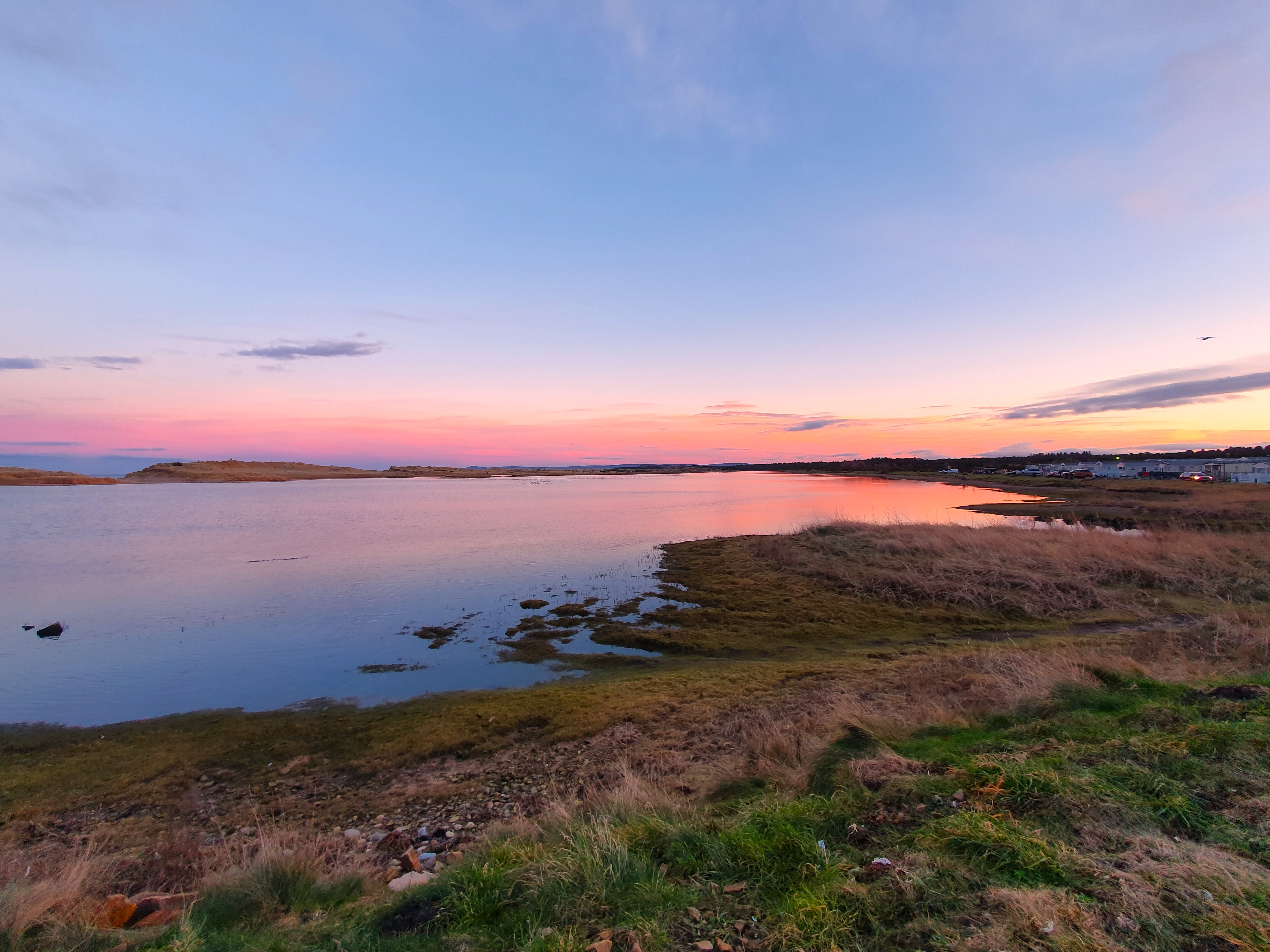
Contact Details
Project Manager - Callum Sinclair
Volunteer & Communications Officer - Jane Hamilton
For contact details visit our staff page
And finally,...thanks
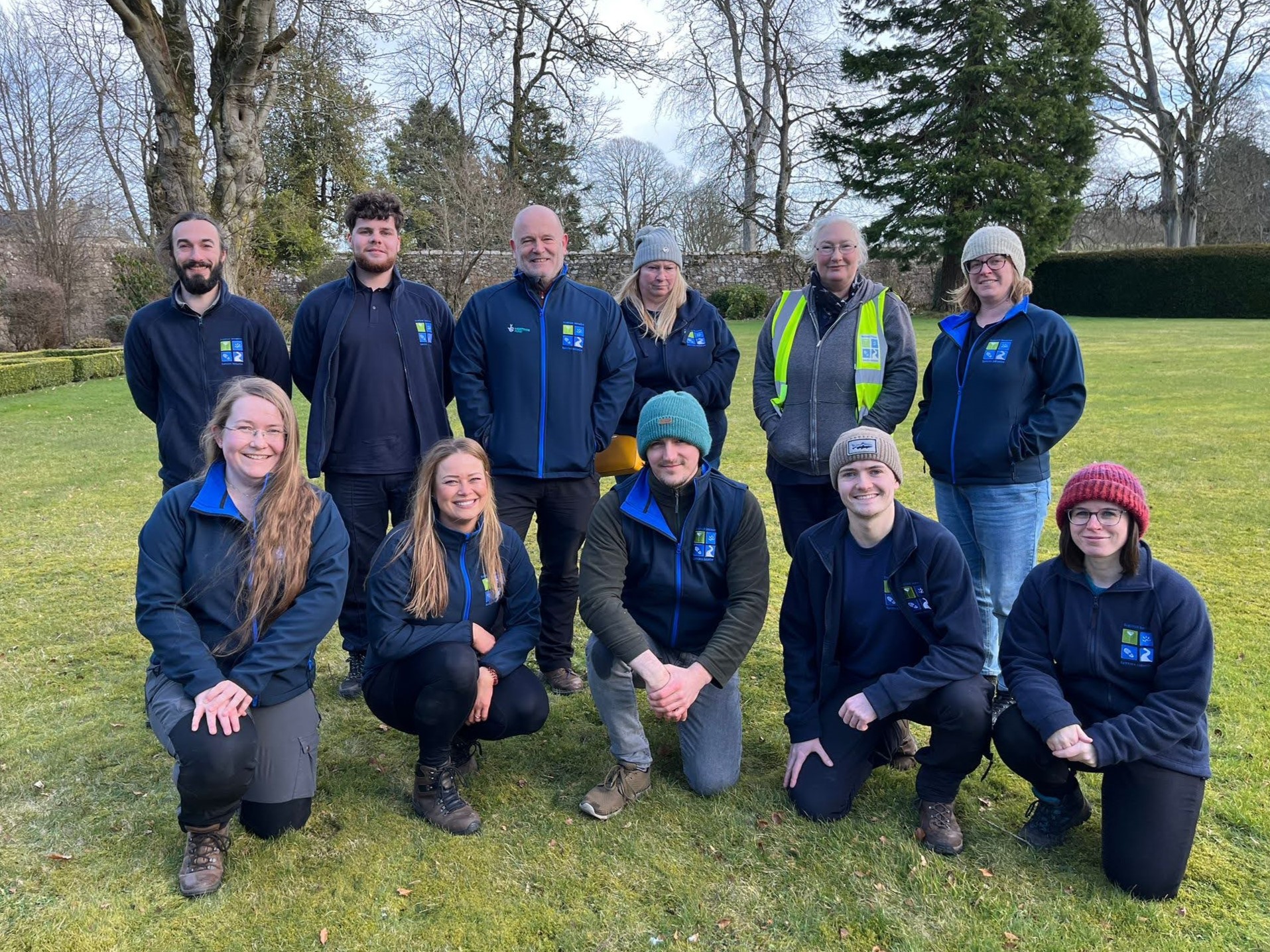
Even if our local contact has not thanked you personally after every activity or task you undertake with us (though they should do, and we are sure they will!), please remember that the Scottish Invasive Species Initiative does thank you for your volunteer interest, commitment and hours - whenever and wherever you give them.
The success of the Initiative is built on our partnership with you, our volunteers, and our work together to manage invasive species across northern Scotland and provide a secure future for our native wildlife.
The commitment, willing and enthusiasm you bring is hugely appreciated - thank you!
- the SISI team
